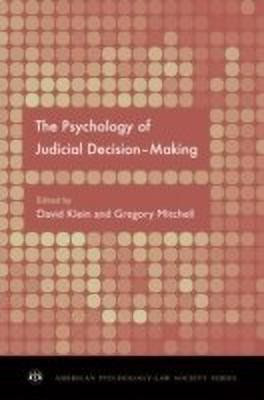The Psychology of Judicial Decision Making(English, Hardcover, unknown)
Quick Overview
Product Price Comparison
Over the years, psychologists have devoted uncountable hours to learning how human beings make judgments and decisions. As much progress as scholars have made in explaining what judges do over the past few decades, there remains a certain lack of depth to our understanding. Even where scholars can make consensual and successful predictions of a judge's behavior, they will often disagree sharply about exactly what happens in the judge's mind to generate the predicted result. This volume of essays examines the psychological processes that underlie judicial decision making. The first section of the book takes as its starting point the fact that judges make many of the same judgments and decisions that ordinary people make and considers how our knowledge about judgment and decision-making in general applies to the case of legal judges. In the second section, chapters focus on the specific tasks that judges perform within a unique social setting and examine the expertise and particular modes of reasoning that judges develop to deal with their tasks in this unique setting. Finally, the third section raises questions about whether and how we can evaluate judicial performance, with implications for the possibility of improving judging through the selection and training of judges and structuring of judicial institutions. Together the essays apply a wide range of psychological insights to help us better understand how judges make decisions and to open new avenues of inquiry into the influences on judicial behavior.


